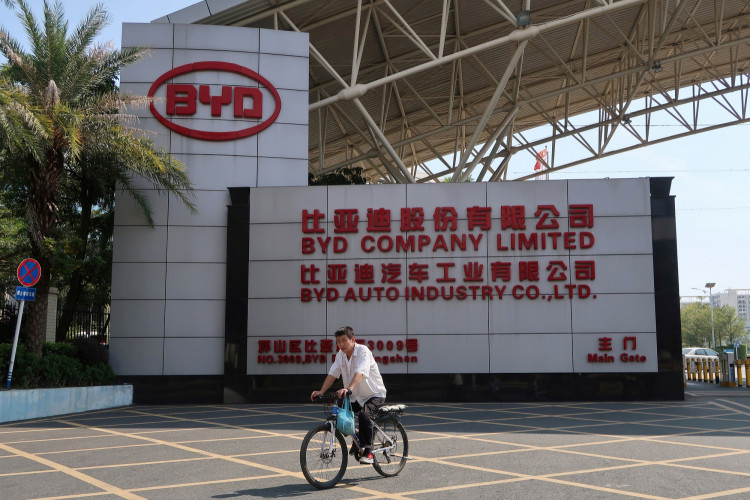Recent reports from Indian media reveal that the Indian government has rejected a significant investment plan from Chinese automaker BYD. According to The Economic Times on the 22nd, the Department for Promotion of Industry and Internal Trade (DPIIT) dismissed the proposal by BYD to construct an electric vehicle (EV) factory in India in partnership with local companies.
The News on BYD's Proposal
Earlier, Reuters had reported that BYD submitted a $1 billion investment proposal, intending to manufacture electric vehicles and batteries in India in partnership with local infrastructure giant, the Mega Corporation. Neither BYD nor the relevant Indian departments offered clear responses at that time. The Economic Times' latest report reveals that DPIIT has sought opinions from other departments regarding this investment suggestion. It was mentioned by an Indian official during the discussion that there were concerns raised about the security of Chinese investments in India. Another official participating in the discussion indicated that current regulations do not permit such investments.
As per Indian media, the proposal submitted by both companies to the Indian authorities pledged to manufacture between 10,000 to 15,000 electric vehicles annually at the proposed factory. One source involved in the plan disclosed that the Mega Corporation would provide the funding, while the production technology and processes would come from BYD. The investment plan also included the establishment of charging stations, research and development centers, and training centers in India.
Response from BYD and Mega Corporation
In response to the rejection of the investment proposal, the Economic Times reports that it was unable to reach BYD and Mega Corporation for comment. When a Global Times reporter contacted BYD on the 23rd, there was no immediate response.
The Economic Times highlighted that BYD officially entered the Indian passenger car market in October of the previous year with the launch of the Atto 3 electric vehicle.
Changes in Foreign Direct Investment Policies
Indian media stated that in April 2020, Prime Minister Modi's government changed its foreign direct investment policies. The policies mandated that countries sharing a land border with India must receive government approval, and a security review by DPIIT, when investing in India. While this foreign capital review policy does not mention any specific country, its purpose appears to be to "prevent Chinese companies from acquiring Indian entities post-pandemic."
The Economic Times noted that there were allegations stating some Chinese automotive companies had engaged Indian partners as fronts, without any long-term strategic intentions of transferring their manufacturing capabilities to India. DPIIT subsequently began scrutinizing Chinese auto companies associated with Indian firms.
Views on India's Strategy
Lin Minwang, deputy director of the South Asian Studies Center at Fudan University, stated in an interview with the Global Times that BYD's investment plan in India was clearly a greenfield investment. It did not involve the acquisition of Indian companies. Therefore, he said, the Indian government's so-called national security concerns were an apparent excuse. He further added that the rise of Chinese smartphones in India was seen as a warning by the Indian government, who were keen to avoid repeating this experience by aggressively promoting trade protectionism and the "Make in India" national strategy.
Impact on Sino-Indian Trade Relations
In recent years, Sino-Indian trade relations have been impacted due to changes in bilateral relations. Since the Galwan Valley clash in June 2020, relations between both sides have been strained. Some departments in India have increasingly politicized economic issues between the two nations, raising tariffs, restricting investments, and even employing various non-trade barriers to limit Chinese businesses.
Lin Minwang conveyed that there is a wide space for Sino-Indian economic and trade cooperation. Chinese companies investing in India can improve local infrastructure, create numerous jobs, and enhance the living standards of local people. He hopes that the Indian government will abandon trade protectionism and the politicization of economic issues. Instead, considering the interests of Indian companies and the public, they should strive to create a fair and transparent business environment for foreign investments, including Chinese companies.



